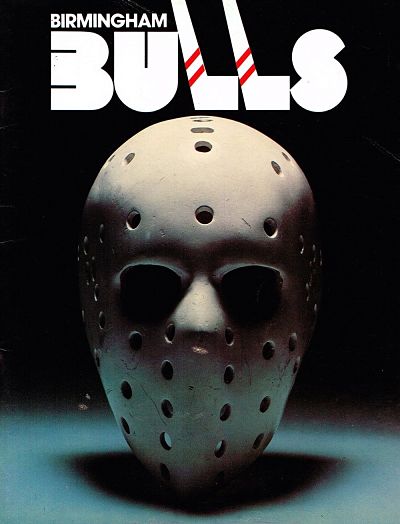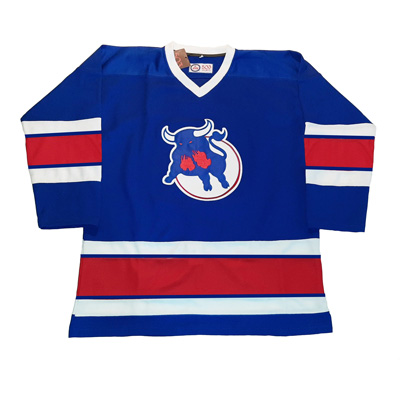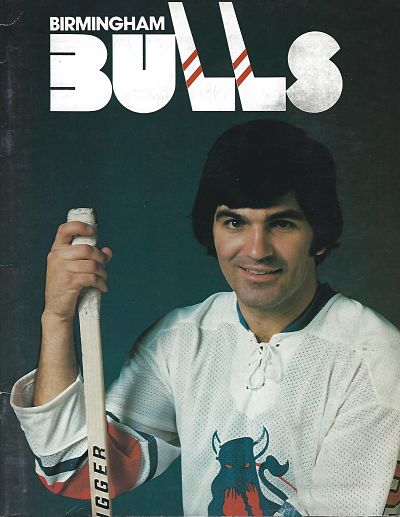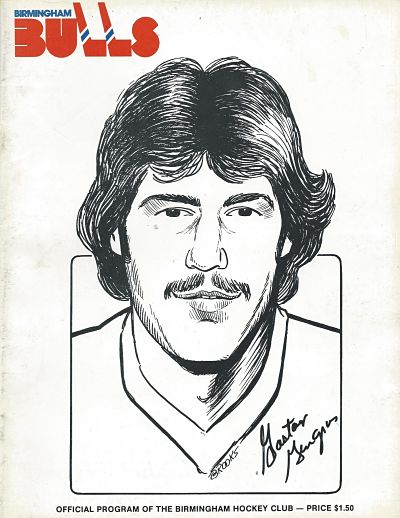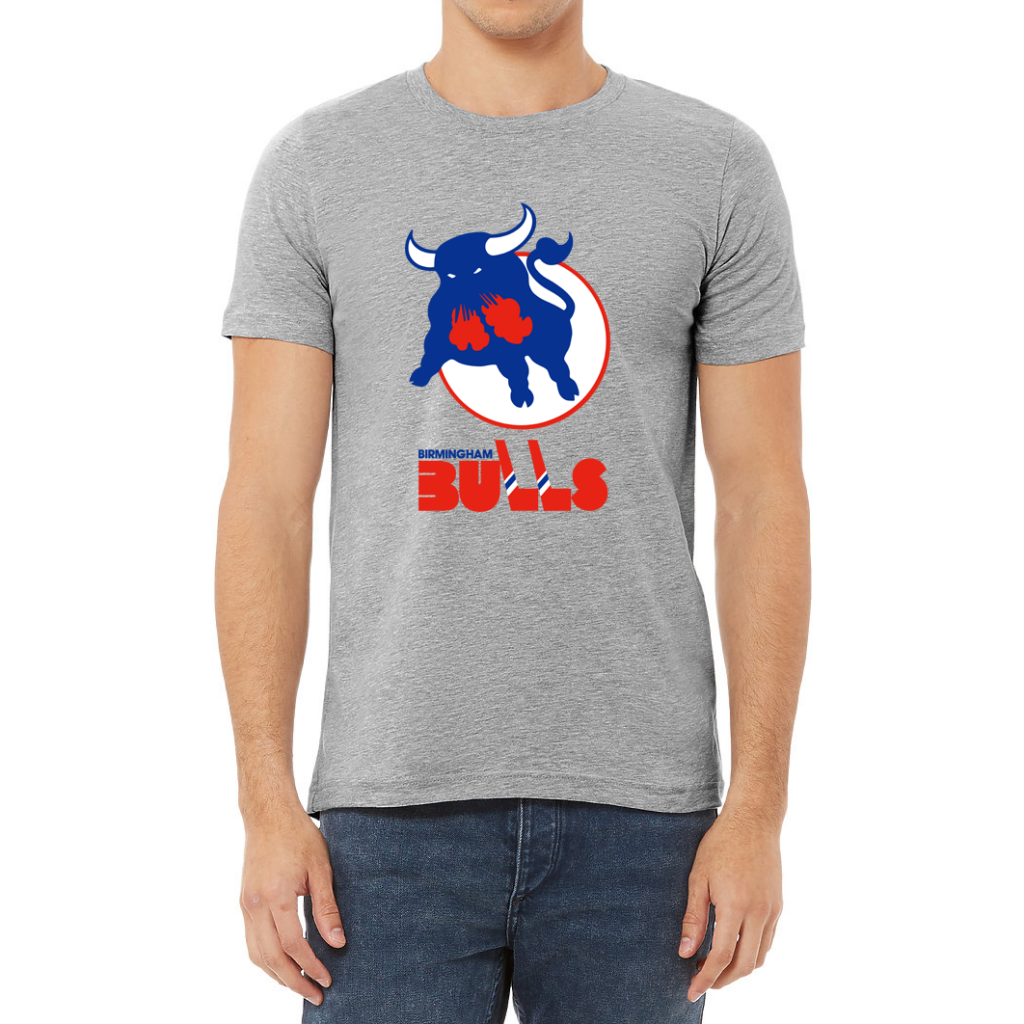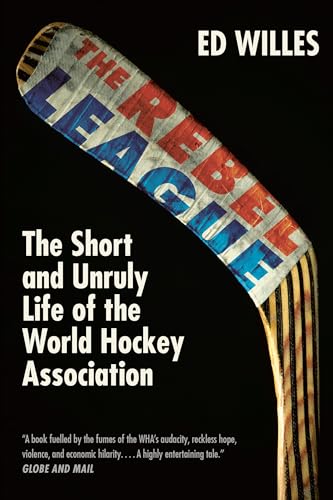World Hockey Association (1976-1979)
Central Hockey League (1979-1981)
Tombstone
Born: June 29, 1976 – The Toronto Toros relocate to Birmingham, AL
Folded: February 23, 1981
First Game: October 8, 1976 (W 4-2 vs. Houston Aeros)
Last Game: February 20, 1981 (L 5-2 vs. Salt Lake Golden Eagles)
AVCO Cup Championships (WHA): None
Adams Cup Championships (CHL): None
Arena
Birmingham Jefferson Civic Center (16,753)11977-78 World Hockey Association Media Guide
Opened: 1976
Marketing
Team Colors: Red, White & Blue
Ownership
Owners:
- 1976-1979: John Bassett, Jr.
- 1979-1981: Magic City Sports (Frank Falkenburg, et al.)
Our Favorite Gear
Birmingham Bulls
Replica Jersey
When it comes to Replica Jerseys, we turn to our friends at Royal Retros, who put extraordinary detail into their fully customizable hockey sweaters.
Free Customization Included
Each jersey individually handmade
Any name and number
Sewn tackle twill crest, numbers & letters
100% polyester
Heavyweight fabric made to game standards
Fight strap included
When you make a purchase through an affiliate link like this one, Fun While It Lasted earns a commission at no additional cost to you. Thanks for your support!
Background
The Birmingham Bulls of the World Hockey Association were one of the first major pro hockey teams to make their home in the Deep South, sharing that distinction with the slightly older Atlanta Flames of the National Hockey League.
The Bulls franchise dated back to the formation of the WHA in 1972. Originally they were the Ottawa Nationals. But the team misfired in Canada’s capital city and moved to Toronto in 1973 with a dynamic new owner in charge, 34-year John Bassett, Jr. Bassett’s father, John Bassett, Sr., was a Toronto media mogul and a former partner in the ownership of the NHL’s Toronto Maple Leafs during the 1960’s when the team won four Stanley Cups. The elder Bassett was forced out of the Maple Leafs in 1971 following a bitter power struggle with his partners Harold Ballard and Stafford Smythe.
Harold Ballard’s consolidation of control over the Leafs in the early 1970’s launched an era of pitch black despair for the city’s hockey fans. He failed to take seriously the arrival of the WHA in 1972. The upstart league raided the Leafs’ roster mercilessly. Ballard then promptly went to prison on fraud charges. While the Maple Leafs sank and Ballard fought his legal battles, the younger John Bassett moved Ottawa’s WHA club to Toronto in the fall of 1973. Now a second generation of Bassetts would do battle with Harold Ballard.
The Toros were a popular draw at Varsity Arena during the winter of 1973-74. But in 1974, Bassett moved the Toros into Maple Leaf Gardens. Ballard, who controlled the Gardens, was in the process of re-asserting himself after his release from prison. The Leafs owner carried a special hatred of the WHA, who he blamed for plundering his roster and driving up salaries in an inter-league bidding war. When the Toros made their Gardens debut in 1974, Ballard dimmed the lights for their opening game.
Move To Alabama
Ballard’s control of the building lease ultimately made life impossible for the Toros in Toronto. So Bassett moved the team all the way to Birmingham, Alabama, of all places, for the 1976-77 WHA season. Actually, the move wasn’t quite as strange as it seemed. Bassett had previous pro sports experience in the American South, having owned the popular Memphis Southmen of the World Football League in 1974 and 1975. In Birmingham, the hockey team would retain the Toros old colors and logo, but switched to the more Anglicized “Bulls” nickname.
The Bulls never posted a winning record and made the playoffs only once in three WHA seasons. But they always had a fascinating cast of characters. Future Hall-of-Famer Frank Mahovlich moved south with the team from Toronto, as did 1972 Summit Series hero Paul Henderson (who many feel should be in the Hall). But what the Bulls would truly become known for was Bassett’s maverick youth movement.
The Baby Bulls
In the late 1970’s both the NHL and the WHA observed a minimum age of 20 years old to be eligible for the pro draft. Bassett thought it ridiculous to restrict player movement after the age of consent and also saw an opportunity for a competitive advantage over the NHL. In 1977, he signed 18-year old Ken Linseman from the Kingston Canadians junior hockey team. The WHA attempted to invalidate the signing, but Bassett won in federal court. Linseman signed and scored 38 goals as a rookie during the 1977-78 season.
The next summer, Bassett raided the juniors in earnest, signing seven more 18-year olds, including Gaston Gingras, Michel Goulet, Craig Hartsburg, Rob Ramage, Pat Riggin and Rick Vaive. Birmingham finished dead last in the WHA in 1979-79, but the league still saw fit to name Bulls coach John Brophy as its coach-of-the-year for molding a group of teenagers into a reasonably competitive squad.
WHA-NHL Merger & Relegation to Central Hockey League
At the end of the 1978-79 hockey season, the on-again/off-again merger between the WHA and the NHL finally came together. The WHA’s three Canadian franchises plus the New England Whalers were allowed to pay $6 million each to join the NHL. The WHA’s remaining two clubs – the Bulls and the Cincinnati Stingers – were dropped. Both decided to re-organize and join the minor Central Hockey League.
Head Coach John Brophy continued with the CHL edition of the Birmingham Bulls, which retained the team logo and colors of the WHA franchise. But John Bassett stepped back from majority ownership, which would ultimately cripple the Bulls’ viability. Magic City Sports, headed by Frank Falkenburg, were the new majority owners of the Bulls. The Bulls became a farm club of the Atlanta Flames – the NHL’s own struggling Deep South franchise. The Flames would move to Calgary after the Bulls’ first season in the CHL but the clubs would maintain a long-distance relationship – briefly.
Midway through the 1980-81 CHL season, Magic City Sports ran out of money. They asked Calgary for a bailout to get them through the season, but the parent club declined. The Bulls were forced to fold in midseason on February 23, 1981. Owner Frank Falkenburg publicly criticized the Flames, both for failing to prop up the club and for allegedly sending lousy players to Birmingham, resulting in a losing team and declining attendance.
Aftermath
Michel Goulet and Rob Ramage were the last active members of the original Birmingham Bulls. Both players retired in 1994 after long NHL careers.
Birmingham saw several other minor league teams come and go over the next couple of decades. The longest lasting of them was a nostalgic 1992 revival of the Birmingham Bulls brand new by the East Coast Hockey League. The ECHL Bulls lasted nine seasons from 1992-2001.
John Bassett went back to football and founded the Tampa Bay Bandits of the United States Football League in 1983. In the ESPN 30 for 30 documentary Small Potatoes: Who Killed the USFL? Bassett is presented as the league’s white knight owner, battling Donald Trump for the soul of the springtime football league. Bassett’s struggle with Trump was hampered by his diagnosis with brain cancer in 1985. He succumbed to the disease on May 15, 1986.
Birmingham Bulls Shop
Our Favorite Stuff
Birmingham Bulls
1976-1979 Logo T-Shirt
Alliteration was the rule of the day for this World Hockey Association franchise of the 1970’s. In Toronto from 1973 to 1976, the club was known as the Toros, using the Spanish plural form for bull. When owner John Bassett moved the team to Birmingham in 1976, he kept the team’s snorting beast logo, but chose the Anglicized “Bulls” to roll off the tongue with his new host city of Birmingham.
This Bulls design is also available in white and blue from Royal Retros.
Editor's Pick
The Rebel League
The Short and Unruly Life of the World Hockey Association
By Ed Willes
The Rebel League celebrates the good, the bad, and the ugly of the fabled WHA. It is filled with hilarious anecdotes, behind the scenes dealing, and simply great hockey. The upstart WHA introduced to the world 27 new hockey franchises, a trail of bounced cheques, fractious lawsuits, and folded teams. It introduced the crackpots, goons, and crazies that are so well remembered as the league’s bizarre legacy.
But the hit-and-miss league was much more than a travelling circus of the weird and wonderful. It was the vanguard that drove hockey into the modern age. It ended the NHL’s monopoly, freed players from the reserve clause, ushered in the 18-year-old draft, moved the game into the Sun Belt, and put European players on the ice in numbers previously unimagined..
When you make a purchase through an affiliate link like this one, Fun While It Lasted earns a commission at no additional cost to you. Thanks for your support!
In Memoriam
Bulls owner John Bassett died of brain cancer on May 15, 1986 at age 47. New York Times obituary.
Head Coach John Brophy (Bulls ’78-’79) passed away on May 23, 2016 at age 83. Globe and Mail obituary.
Downloads
4-3-1979 Birmingham Bulls vs. Quebec Nordiques Game Notes
4-3-1979 Birmingham Bulls vs Quebec Nordiques Game Notes##

